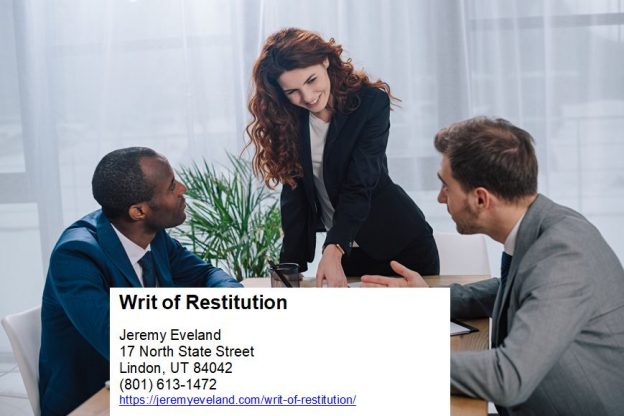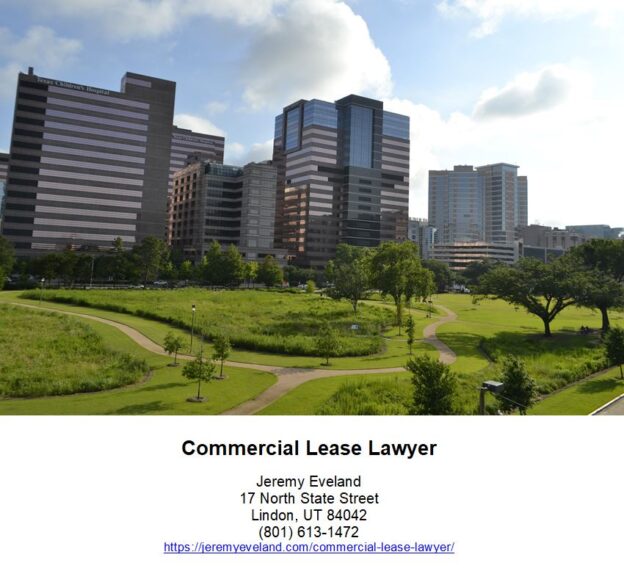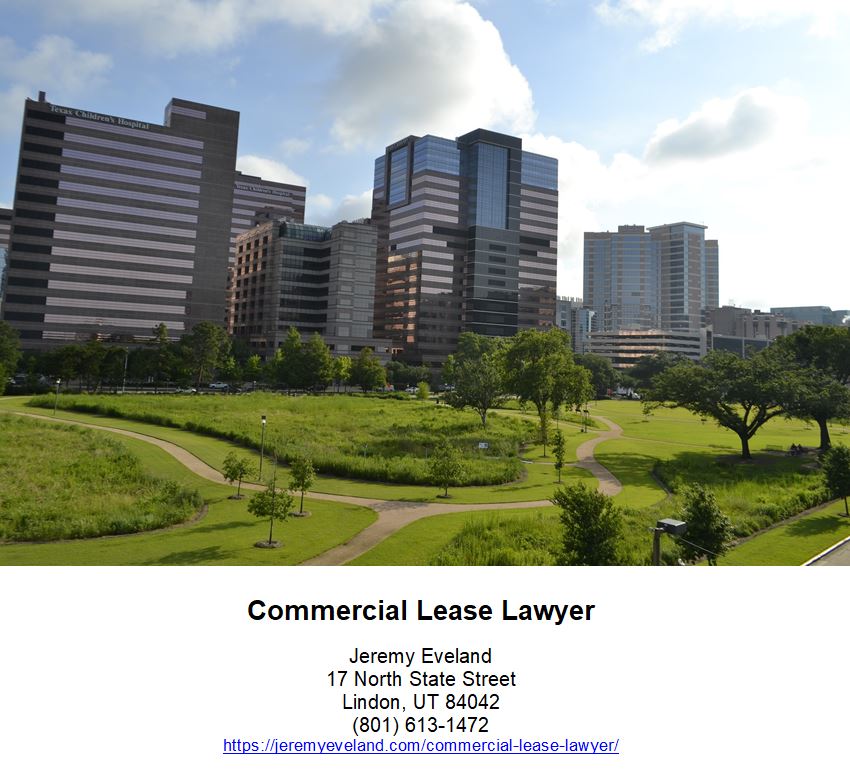Are you a landlord or a tenant in the state of Utah and in need of a solid lease agreement? Look no further, as this article will provide you with valuable information on how to create a strong and legally-binding lease agreement in Utah. Whether you are a new or experienced landlord, or a tenant wanting to fully understand your rights and responsibilities, this article will guide you through the process, giving you the knowledge and confidence to create a lease agreement that protects your interests. By following the steps outlined in this article, you can ensure that your lease agreement is comprehensive, clear, and enforceable under Utah law.
How To Create A Solid Lease Agreement In Utah

1. Understand Utah Landlord-Tenant Laws
Utah landlord-tenant laws are regulations that govern the relationship between landlords and tenants in the state. It is crucial for both parties to have a clear understanding of these laws to ensure a smooth and legally compliant rental experience.
1.1 Overview of Utah Landlord-Tenant Laws
Utah landlord-tenant laws cover various aspects of the rental process, including lease agreements, security deposits, eviction procedures, and maintenance responsibilities. By familiarizing yourself with these laws, you can protect your rights and obligations as a landlord or tenant.
1.2 Familiarize Yourself with the Utah Fit Premises Act
The Utah Fit Premises Act requires landlords to maintain rental properties in a habitable condition. This means that the premises must be safe, clean, and free from hazards that could pose a threat to the tenant’s health or safety. As a landlord, understanding and complying with this act is essential to avoid potential legal issues.
1.3 Learn about Utah Security Deposit Laws
Utah has specific laws regarding security deposits, including the maximum amount that can be charged, the timeframe for returning the deposit, and the conditions under which deductions can be made. By familiarizing yourself with these laws, you can ensure proper handling of security deposits and avoid disputes with tenants.
2. Identify and Define the Parties Involved
Clearly defining the parties involved in the lease agreement is crucial to establish a legally binding contract and facilitate effective communication throughout the tenancy.
2.1 Clearly State the Names and Addresses of the Landlord and Tenant
Include the full legal names and addresses of both the landlord and the tenant in the lease agreement. This ensures that both parties can be easily identified and contacted.
2.2 Include Contact Information for Effective Communication
Provide contact information such as phone numbers and email addresses for the landlord and tenant. This enables prompt communication in case of any issues or emergencies that may arise during the tenancy.
3. Describe the Property
A detailed description of the rental property is necessary to ensure that both the landlord and tenant have a clear understanding of the premises being rented.
3.1 Provide a Detailed Description of the Rental Property
Include details such as the number of bedrooms, bathrooms, and other rooms in the property. Describe the overall condition of the property and any unique features or amenities it may have.
3.2 Include the Address and Unit Number
Clearly state the address of the rental property, including the unit number if applicable. This helps to avoid any confusion regarding the location of the rental property.
3.3 Specify Any Parking or Storage Spaces Included
If the rental property includes parking spaces or storage units, make sure to specify this in the lease agreement. Clearly define the terms and conditions for the use of these spaces, such as whether they are exclusive to the tenant or shared with others.
4. Define the Lease Term
Clearly defining the lease term in the agreement ensures that both the landlord and tenant understand the duration of the tenancy.
4.1 Specify the Start and End Dates of the Lease
Clearly state the start and end dates of the lease in the agreement. This eliminates any ambiguity regarding the duration of the tenancy and helps to prevent misunderstandings.
4.2 Address Renewal or Extension Options
If there are options for lease renewal or extension, clearly outline the terms and conditions for exercising these options. Include any notice periods or requirements that need to be fulfilled for the renewal or extension to be valid.
4.3 Discuss Procedure for Early Termination and Notice Period
In the event that either party wishes to terminate the lease before its designated end date, it is essential to have a procedure in place. Clearly define the notice period required for early termination and any penalties or fees that may apply.
5. Set the Rent and Payment Terms
Establishing the rent amount and payment terms in the lease agreement ensures that both parties are aware of their financial obligations.
5.1 State the Monthly Rent Amount and Due Date
Clearly state the monthly rent amount that the tenant is required to pay and specify the due date. This provides clarity on the financial obligations and helps to avoid any confusion or late payments.
5.2 Outline Accepted Payment Methods
Specify the accepted methods of payment for the rent. This can include options such as bank transfers, checks, or online payment platforms. By clearly stating the accepted payment methods, you can facilitate smooth rent collection.
5.3 Address Late Payment Penalties
In the event that the tenant fails to pay the rent on time, it is important to establish late payment penalties in the lease agreement. Clearly define the amount of the late fee and the timeframe within which it must be paid to avoid any disputes.
6. Clarify Security Deposit Details
Clearly outlining the details of the security deposit in the lease agreement helps both the landlord and tenant understand their rights and responsibilities.
6.1 State the Amount of the Security Deposit
Specify the amount of the security deposit that the tenant is required to pay before moving into the rental property. Ensure that the amount complies with Utah’s legal requirements.
6.2 Explain the Conditions for Deposit Deductions
Clearly define the circumstances under which deductions may be made from the security deposit. This can include damages beyond normal wear and tear or unpaid rent.
6.3 Provide a Timeline for Deposit Return
State the timeframe within which the landlord is required to return the security deposit to the tenant after the tenancy has ended. Utah law generally requires landlords to return the deposit within 30 days.
6.4 Discuss Interest on Security Deposits
Utah law does not require landlords to pay interest on security deposits. However, if interest will be paid, clearly state the rate and method of calculation in the lease agreement.

7. List Tenant Responsibilities
Clearly outlining the tenant’s responsibilities in the lease agreement ensures that they are aware of their obligations during the tenancy.
7.1 Outline Maintenance and Repairs
Specify the tenant’s responsibilities for maintaining the rental property, including routine upkeep and repairs caused by their negligence. Clearly state any limitations on the tenant’s ability to make repairs or alterations without the landlord’s consent.
7.2 Specify Utilities and Services
Clearly state which utilities and services the tenant is responsible for paying, such as electricity, water, and internet. Outline any restrictions or guidelines regarding the usage of these utilities.
7.3 Address Rules and Regulations
Outline any rules and regulations that the tenant must abide by during the tenancy, such as noise restrictions, pet policies, or smoking regulations. Clearly state any consequences for non-compliance.
8. Address Landlord Obligations
Clearly defining the landlord’s obligations in the lease agreement ensures that they fulfill their responsibilities as required by Utah law.
8.1 Ensure Compliance with Health and Safety Codes
State that the landlord is responsible for ensuring that the rental property meets all applicable health and safety codes. This includes maintaining essential services such as heating, plumbing, and electrical systems.
8.2 Provide Adequate Notice for Property Entry
Specify that the landlord must provide sufficient notice before entering the rental property for inspections, repairs, or other reasons allowed by law. Utah law generally requires at least 24 hours of notice.
8.3 Clarify Maintenance and Repairs Responsibilities
Clearly outline the landlord’s responsibilities for maintaining the rental property in a habitable condition. This includes repairing major systems and addressing any essential repairs or maintenance issues.

9. Include Terms for Early Termination
Establishing terms for early termination in the lease agreement protects the rights of both the landlord and tenant in the event of unforeseen circumstances.
9.1 Discuss Circumstances for Termination
Clearly define the circumstances under which either party may terminate the lease agreement before its designated end date. This can include situations such as job relocation or significant changes in circumstances.
9.2 Determine Termination Fees or Penalties
Specify any fees or penalties that may apply in the event of early termination by either party. This provides clarity on the financial consequences of terminating the lease agreement before its intended end date.
10. Include Necessary Disclosures
Including necessary disclosures in the lease agreement ensures transparency and compliance with relevant laws.
10.1 Provide Lead-Based Paint Disclosure (if applicable)
If the rental property was built before 1978, federal law requires landlords to provide tenants with a lead-based paint disclosure. Clearly state whether the property contains lead-based paint and provide the necessary informational pamphlet.
10.2 Include Disclosure for Known Defects or Hazards
If the landlord is aware of any defects or hazards in the rental property, disclose this information in the lease agreement. This helps to ensure the tenant’s safety and avoid potential legal issues.
By following these steps and including the necessary provisions in the lease agreement, you can create a solid and legally compliant document that protects the rights and responsibilities of both landlords and tenants.
Frequently Asked Questions
1. Can a landlord charge any amount as a security deposit in Utah?
No, there are legal limits on the amount a landlord can charge as a security deposit in Utah. The maximum security deposit cannot exceed the value of two months’ rent.
2. What is the timeframe for returning the security deposit in Utah?
Under Utah law, landlords are generally required to return the security deposit within 30 days after the termination of the tenancy.
3. Can a landlord enter the rental property without the tenant’s permission in Utah?
No, landlords in Utah must provide sufficient notice to tenants before entering the rental property. Generally, at least 24 hours of notice is required, except in cases of emergency.
4. Can a tenant make repairs to the rental property without the landlord’s consent in Utah?
In most cases, tenants in Utah are not allowed to make repairs or alterations to the rental property without the landlord’s consent. It is important to check the lease agreement for any specific provisions regarding tenant-initiated repairs.
5. Is a written lease agreement required in Utah?
While it is not legally required to have a written lease agreement in Utah, it is highly recommended to have one. A written lease agreement helps to avoid misunderstandings and provides a clear record of the rights and obligations of both parties.
Remember, it is always advisable to consult with a qualified attorney to ensure that your lease agreement complies with all relevant laws and fulfills your specific needs as a landlord or tenant in Utah.







